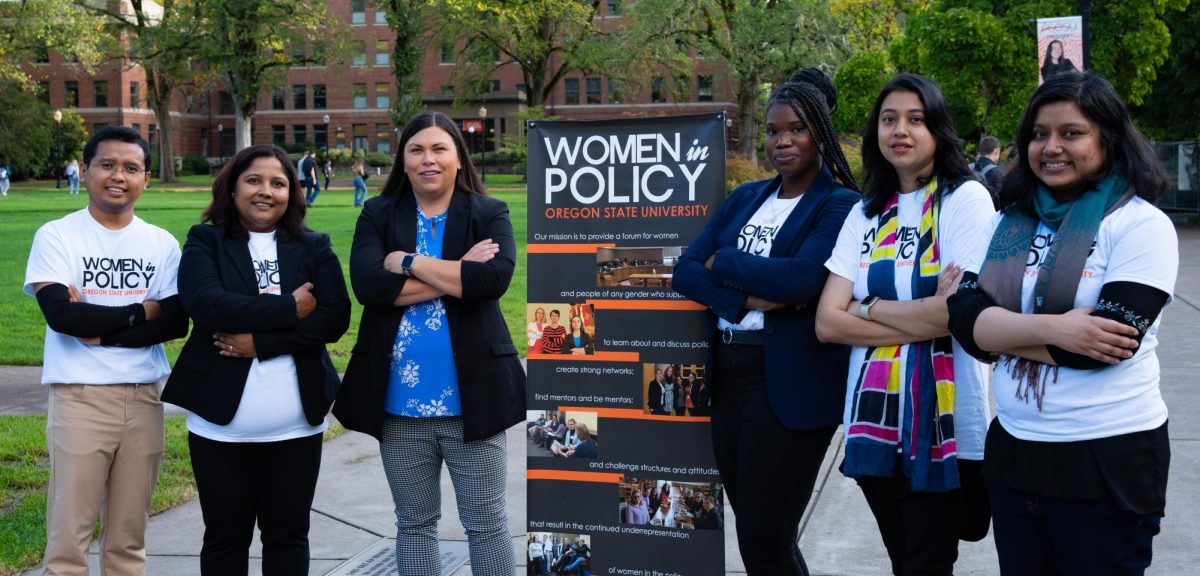Content Warning: mentions of sexual assault that may be triggering for some readers
In 1992, an 18-year-old Italian girl got behind the passenger seat of a car ready for her very first driving lesson.
Instead of receiving instructions from her 45-year-old driving instructor, she was driven to an isolated area and assaulted by him. This event eventually led to what is now known as Denim Day.
Denim Day is a campaign that takes place every year since 1999 on the last Wednesday of every April, in honor of Sexual Assault Awareness Month, to bring awareness to victim blaming and myths surrounding sexual violence.
The teenager reported the assault, and the perpetrator was arrested, tried, found guilty and sentenced for his crime.
In 1999, the driving instructor appealed his conviction, claiming that he and his victim had consensual sex. The Italian Supreme Court agreed and overturned his conviction.
The once convicted rapist goes free and a movement is born. The reason being because the victim was wearing tight jeans.
The Italian Supreme Court stated that because the victim was wearing very tight jeans, she must have helped the man remove them. By helping to remove the jeans, it was not considered rape but consensual sex.
This justification soon came to be known as the “jeans alibi” throughout Italy.
The women in the Italian Parliament chose not remain silent. They rallied to display a show of force and protest, wearing jeans on the steps of the Supreme Court.
News of their protest spread to international media, eventually making its way to California. The California Senate and Assembly, in a display of solidarity, also put on their jeans and stood on the steps of the Capitol in Sacramento.
Since the first Denim Day in LA in 1999, organized by the nonprofit organization Peace Over Violence, April has been the month when sexual assault awareness conversations are highlighted.
The message and spirit of Denim Day has left an imprint on the Oregon State University community, so much so that programming has been coordinated for students during SAAM. A Denim Day activity fair will take place Wednesday, April 24, at the Memorial Union Quad.
Jossilyn Martinez, a community relations representative at the Centro Cultural Cesar Chavez is part of some of the programming around SAAM this year at OSU.
Earlier this month, the CCCC put on an event in partnership with the Center for Advocacy, Prevention & Education called café and consent.
“We wanted to do an event bringing awareness to SAAM while also incorporating the CCCC culture,” Martinez said. “Anything about sex is not usually talked about within Latine culture. We wanted to offer a safe place to discuss consent.”
CAPE is a resource on campus for students that cultivates a survivor-centered culture of consent. According to them, their goal is to create social change and eliminate violence through comprehensive sexual health education, prevention and compassionate survivor support.
Another history-loaded community-based resource on campus that helps raise awareness is Take Back the Night. Stemming from the 1970s, the movement was born out of the violence being enacted against women. Women at universities, mostly in Europe and in the U.S., protested to demand safety protocols be put in place.
These protests eventually expanded, and a Tribunal Council was formed of women from dozens of countries coming together to meet in Belgium to advocate for women’s safety.
The Rainbow Continuum, a student fee-funded organization at OSU, and the Pride Center are also participants in SAAM programming that help connect students with resources, education and community care.
The groups help collaborate to bring Take Back the Night marches to OSU, so students can be educated on the importance of denim day and be reassured that they are not alone and they have options to seek and receive care.
A Take Back the Night event will be held at the Student Experience Center Plaza on Thursday, April 25.
Events like this can help dispel misconceptions of consent and victim blaming, and programming like take back the night and denim day can provide clarity around situations of assault.
According to research from the Association of American Universities, an organization of American research universities, in 2020, the prevalence of nonconsensual sexual contact by force or inability to consent for undergraduate women was about 25.9%.
“If you go out at night, you can expect something to happen to you, and it’s your fault,” Martinez said. “By taking back the night, we get rid of that stigma, being out at night is not the issue, predators that take advantage of people in the cover of darkness are.”
Ashe Thar, a marine studies major at OSU who attends SAAM events, said consent can be overlooked when education is not taught properly, leading to victim blaming and a line of damaging questioning for the victims.
“We can see a lot of victim blaming when it comes to sexual violence, and questions like ‘What were you wearing?’ are usually asked, which can be a lot for the survivor who just went through a lot of trauma,” Thar said. “Even if the survivor was wearing revealing clothing, it doesn’t mean that consent was given, and thus, not justifying the actions that the rapist carried out.”
Thar said that OSU has done well to raise awareness about SAAM resources, and also mentioned other community-based options.
Sarah’s Place is a sexual assault nurse examiner center located in Albany, Oregon. CAPE also hosts trauma-informed yoga classes for the survivors.
According to Martinez, the conversation around assault shouldn’t have a spotlight for just one month out of the year. Comprehensive sexual education should be a cornerstone of education.
“I hope sexual violence and the education for it is not just sought out during April, that we can continue the education and work year-round,” Martinez said.
Martinez and Thar hope to see more open conversations and less stigma around reporting sexual assaults, so that survivors can come forward with anonymity and safety.
“In the future, I hope there’ll be more confidential resources available for the survivors, as well as more events to educate the public about consent,” Thar said.













































































































